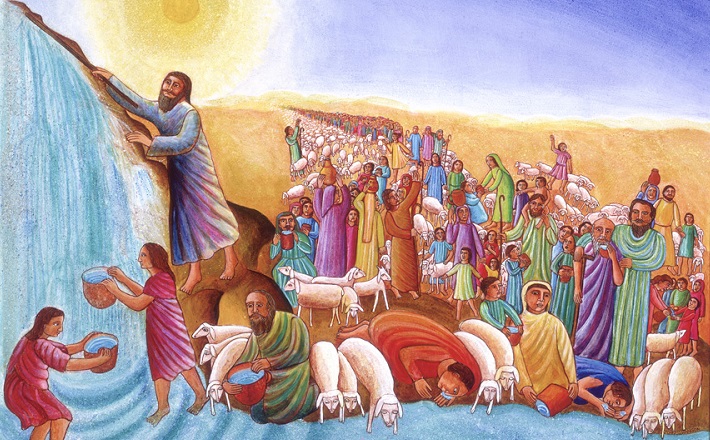Commentary on Acts 2:1-18; Matthew 28:17-20
Week 3 (Sept. 1, 2019)
Preaching texts: Acts 2:1-18; Matthew 28:17-20
For many, the Holy Spirit is the hardest confession of faith either to understand or to make. For humankind to identify the work of the Spirit is either in the 20/20 of hindsight, or an act of purest optimism—or do we call that trust?
Acts 2 recalls the promise of Joel 2, the promise of God’s Spirit being poured out “upon all flesh.” One might see in this—both the promise and its realization on the day of Pentecost—as another example of what Genesis 1:2 describes as “a wind from God” sweeping “over the face of the waters.”
In the Pentecost event, and by extrapolation in the act of baptism which is quite literally a little Pentecost, the Spirit is given and the Spirit then gives gifts—gifts of prophecy and vision and, fundamentally, the gift of confession, of being able to profess faith in Christ Jesus. When I was young, my pastor had me memorize Luther’s explanation of the Third Article of the Creed, which goes like this, “I believe that I cannot, by my own understanding or effort, believe in Christ Jesus my Lord or come to him. But the Holy Spirit has called me through the Gospel….” The point, echoing 1 John 4:2, “every spirit that confesses that Jesus Christ has come in the flesh is from God,” is that it is the Spirit which enables confession.
Matthew 28, then, is the culmination of all of this. The authority entrusted to Jesus is passed on to us and through us in a wave of the Holy Spirit, sweeping over “all nations,” hovering over the creation, working faith and calling forth the confession of the one catholic church. This is all done as a part of God’s continuing Word that creates, that suffers with and for us dying and rising, and sustains God’s people. The Word is the way in which the Spirit sweeps and hovers.
To quote Luther once more:
Wherever you hear or see this word preached, believed, professed, and lived, do not doubt that the true “holy catholic church”… must be there, even though their number is very small. For “God’s word shall not return empty” (Isaiah 55:11) … God’s word cannot be without God’s people, and conversely, God’s people cannot be without God’s word.”1
So, too, it is with the confession of the creed (and of creeds), which profess, teach, and converse with the Word.
Notes:
1 Luther’s Works, 41:150.


September 1, 2019